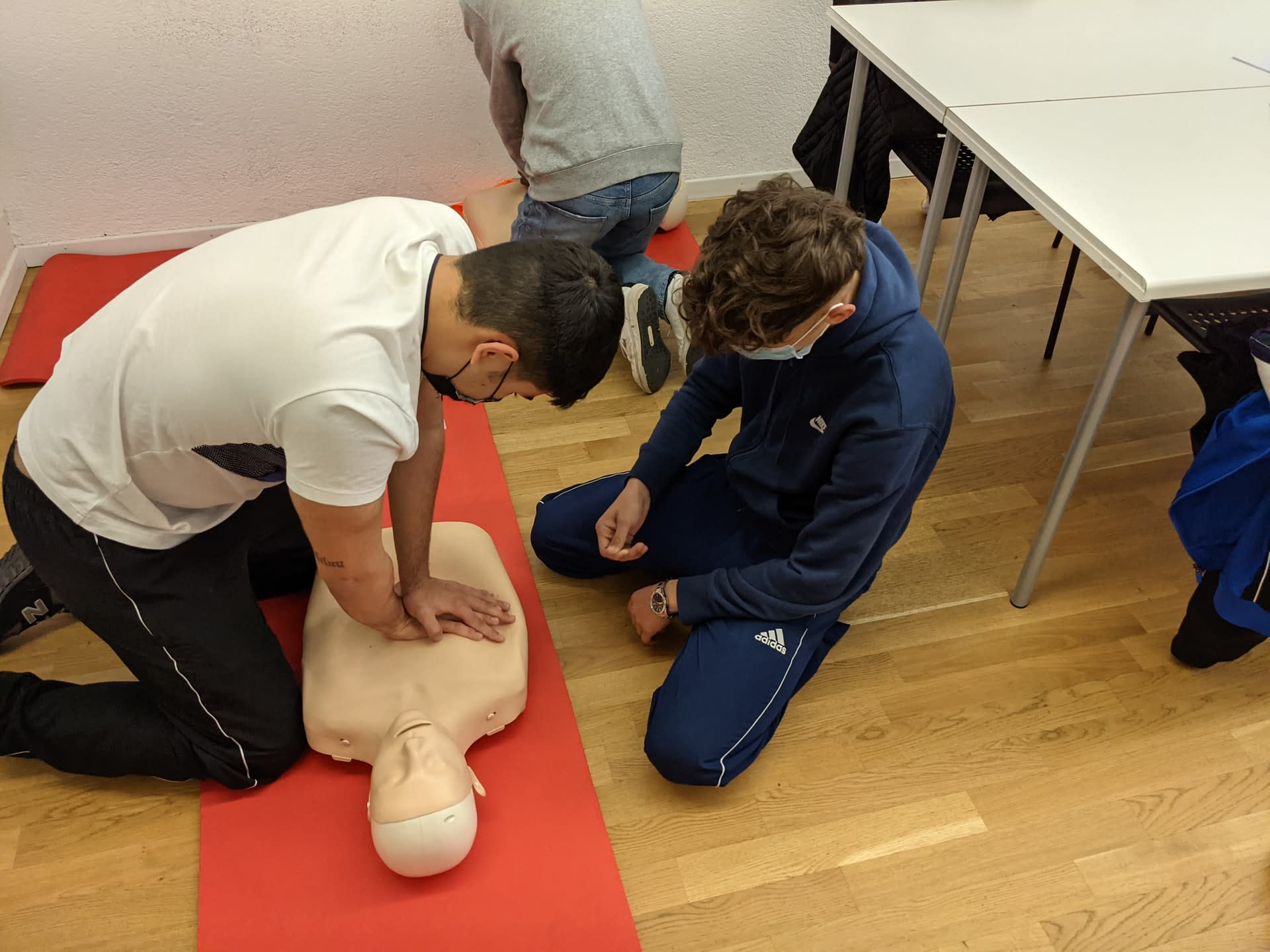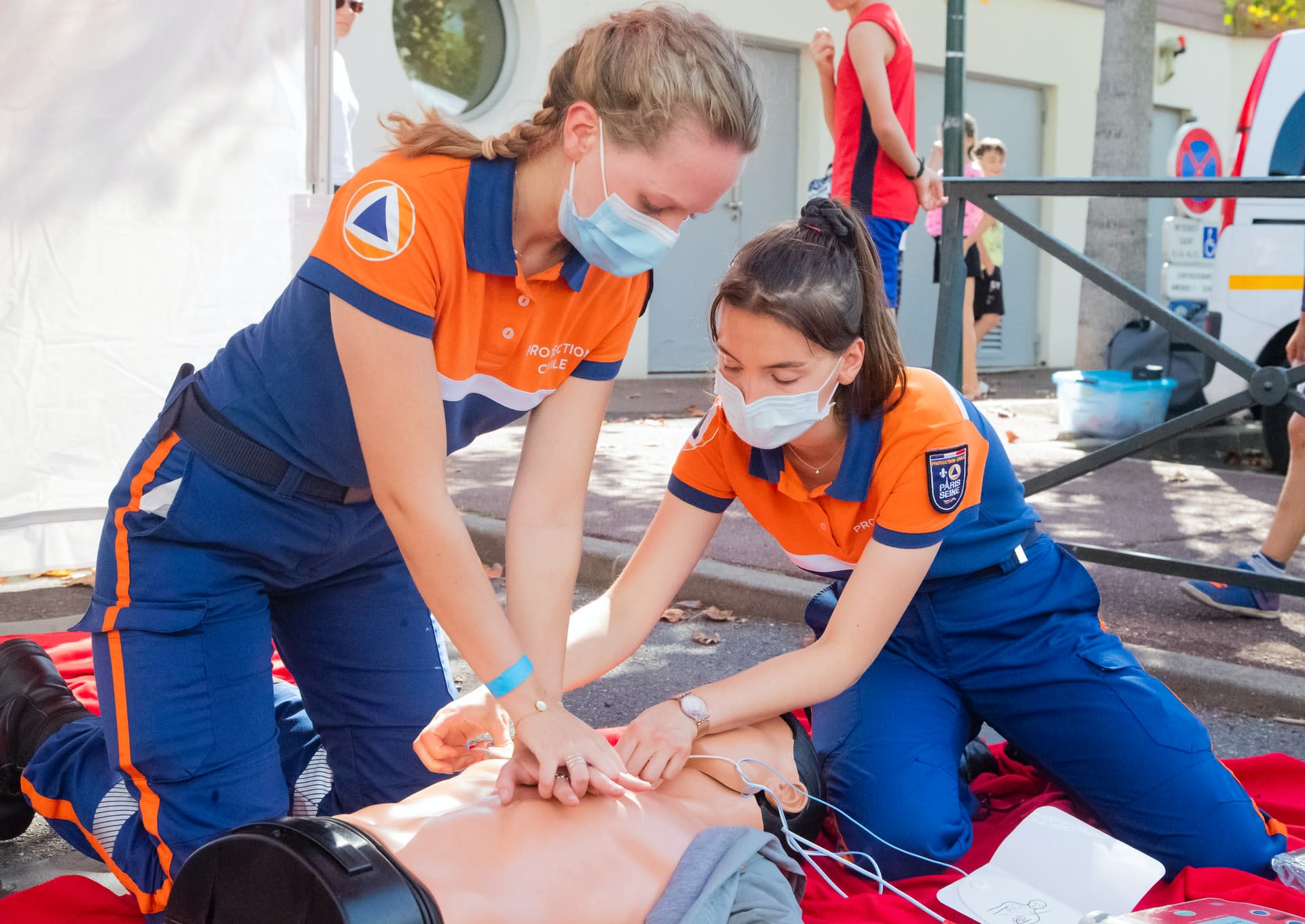
Cardiopulmonary Resuscitation (CPR) is an essential skill that everyone should know. The ability to perform CPR can save lives, but too many people are unaware of how to perform the procedure correctly, or even when it should be performed. Knowledge of CPR should not be confined to emergency personnel only, and if you have the chance you may want to take the time to learn. You never know when you might need to use CPR.
What Is CPR?
Cardiopulmonary resuscitation is a first-line treatment for cardiac arrest. It involves pushing down on a person's chest to manually circulate blood and oxygenate the brain. CPR is a lifesaving technique that consists of chest compressions and rescue breaths. The chest compressions push blood from the heart through the body, while rescue breaths provide fresh oxygen to the lungs.
Learning CPR is essential for anyone who has an interest in saving lives. It is recommended that people learn how to perform CPR at least once, even if they never plan on using the skills. CPR training can be done online or in person. People can perform CPR with minimal training. The goal of performing CPR and other lifesaving skills is to keep blood circulating until medical personnel arrive or until there's a spontaneous return of blood flow and is most effective if performed within the first minutes of the incident.
Why Is CPR An Important Skill To Learn?
Learning CPR is crucial for those in the medical field. The use of CPR varies depending on the type of injury or illness the person requiring CPR has experienced such as helping someone survive an event where they are deprived of oxygen, or keeping oxygenated blood flowing to the brain of someone who has had a heart attack. Almost all emergency service personnel will receive thorough training in performing this life saving procedure.
Regardless of whether you work for emergency services or not, you may benefit from learning how to perform a resuscitation.

You Can Save Lives
As has been stated, CPR is a procedure proven to save lives. Performing cardiopulmonary resuscitation on someone who has suffered an Out of Hospital Cardiac Arrest (OHCA) can double the chance of the person surviving. Sudden cardiac arrest happens when the heart's electrical pattern is disrupted for some reason and the heart can no longer adequately pump blood throughout the rest of the body. You may witness someone collapsing, losing consciousness, and ceasing to breathe. The longer a body is without circulating oxygenated blood, the less likely it is that the person will survive. By performing CPR until an ambulance arrives, the chances of surviving a sudden cardiac arrest are dramatically increased.
CPR Is Straightforward To Learn
Although learning CPR can save a life, it is surprisingly easy to learn. Many people may be frightened to perform CPR on someone in need, as they are worried that they may cause harm or perform CPR wrong, leading to exacerbating problems. Most people will feel more secure performing CPR if they have the proper knowledge and training.
For civilians, simple first aid and CPR training through groups such as the Australian Red Cross or another first aid and CPR training group will give you the skills you need to perform cardiopulmonary resuscitation and even use defibrillators. In the case of medical professionals or those looking to get a more thorough training in CPR, you will need to gain Advanced Cardiovascular Life Support certification and keep it updated with semi-regular training. t is easy to renew ACLS certification online with minimal cost and effort.
No matter how skilled you are with CPR, if you find yourself in a position where someone needs help, calling the emergency services should always be the first thing you do.
Sudden Cardiac Arrests (SCA) Can Happen Anywhere At Any Time
Sudden Cardiac Arrest (SCA) occurs when the heart suddenly and unexpectedly stops beating. When this occurs the person will typically collapse and may stop breathing. There might also be signs that the heart has fully arrested, such as the absence of a pulse. The most common cause of SCA is a disruption to the heart's electrical system, causing a sudden disturbance in heart rhythm. This disruption may be caused by drug or alcohol use but is more often caused by an underlying condition such as an abnormality in one of the heart valves, or a problem with the electrical pathways in the heart. This condition typically occurs without any warning and with no obvious cause. There are two types of Sudden Cardiac Arrests:
- Out-of-hospital: Out-of-hospital arrest means that the arrest has not been witnessed by a healthcare provider. These arrests typically happen at home or work.
- In-hospital: In-hospital arrest means that the arrest occurred while in hospital and can be treated rapidly by healthcare practitioners.
When an out-of-hospital SCA occurs, you may need to put your skills into practice.
You May End Up Saving Someone You Love
The significance of CPR isn't about counting beats per minute or determining the feel of 2-inch compressions. It's about investing in a piece of basic but crucial knowledge that could help someone you care about in the future. You don't want to be a powerless witness in the instance that a loved one suffers a cardiac episode. You may be able to save their life.
How To Perform CPR
There are seven essential steps involved in CPR:
- The heel of your dominant hand should be pressed into the center of the person's chest.
- Your other hand should be placed over your other hand, so your fingers are interlocked.
- Compressions should be started at around 100 per minute.
- Open their mouths.
- Breathe into their mouth.
- Observe as their chest falls and then perform another breath.
- Continue a 30-compression, 2-breath cycle.
Of course this is an extremely simplified explanation of CPR. If you want to feel confident in the knowledge that you know how to properly perform cardiopulmonary resuscitation, you should find a CPR training course online or near you. If you have a history of heart problems, or would like to talk to a healthcare professional to get recommendations for CPR and first aid training, schedule an appointment to see a doctor . The fastest and easiest way to search for and book healthcare appointments online is with MyHealth1st.